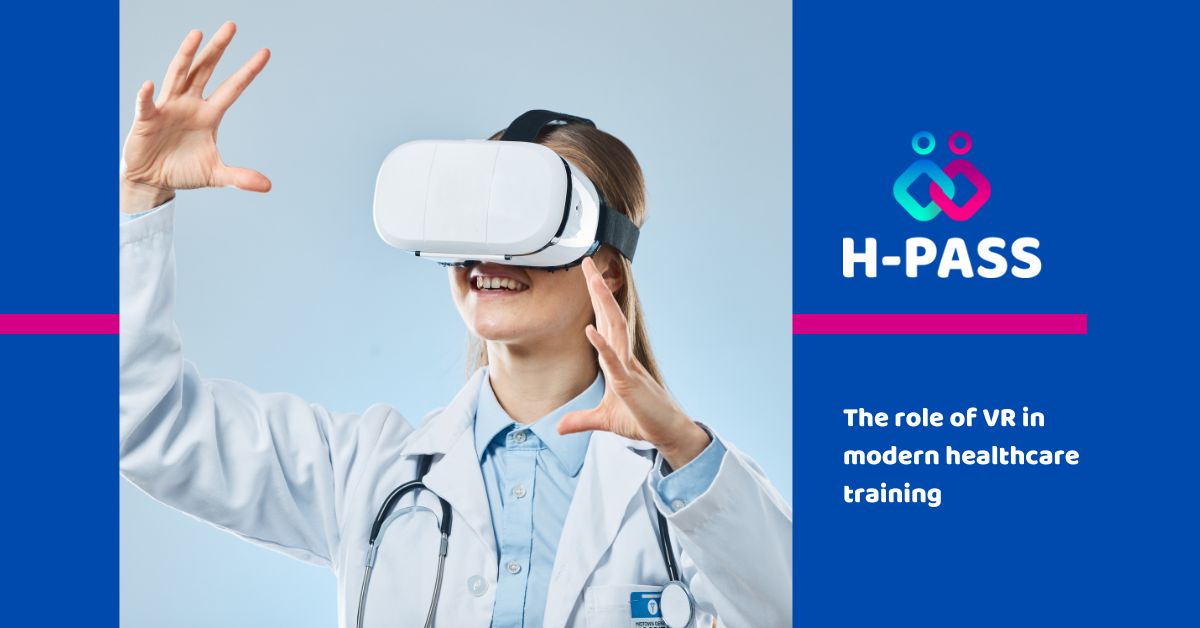The role of VR in modern healthcare training
Continuous education and training are paramount in the rapidly evolving healthcare landscape. Virtual reality (VR) technology is revolutionising the way healthcare professionals acquire and refine their skills. At H-PASS, we recognise the critical role VR plays in modern healthcare education and are excited to integrate this innovative technology into our training programmes.
Why VR is important in healthcare training
- Immersive learning experiences: VR provides an immersive environment where healthcare professionals can practice procedures and techniques in a realistic, risk-free environment. This hands-on experience is invaluable for mastering complex skills and building confidence.
- Improved retention and engagement: Traditional training methods can sometimes be dry and less engaging. VR, on the other hand, captures learners’ attention and improves retention through interactive and engaging scenarios.
- Simulated real-life situations: VR can simulate a wide range of clinical situations, from routine procedures to rare and critical emergencies. This allows healthcare professionals to experience and respond to various scenarios that they may not often encounter in real life, better preparing them for actual practice.
- Safe and controlled environment: One key benefit of VR is that it allows learners to make mistakes and learn from them without real-world consequences. This safe environment is essential for learning and improving skills.
- Scalable training solutions: VR training modules can be standardised and scaled across regions and institutions, ensuring a consistent and high-quality training experience for all participants. This is particularly beneficial for large-scale training programmes such as H-PASS that span multiple countries.
H-PASS and VR: Shaping the future of healthcare education
At H-PASS, we are committed to using VR to create a comprehensive and engaging training programme that meets the evolving needs of healthcare professionals. Our training modules will integrate essential digital and cross-cutting skills, supported by VR technology, to provide a well-rounded educational experience.
As we move forward, our focus remains on selecting the optimal platform to support our methodologically complex training pilot. We look forward to testing and refining our training materials in upcoming sessions, starting with our interim meeting in Cyprus.
Through the use of VR technology, H-PASS aims to set a new standard in healthcare education and ensure that professionals are well-prepared to meet the demands of the digital age. Follow us on this exciting journey as we continue to innovate and advance healthcare workforce development across Europe.



